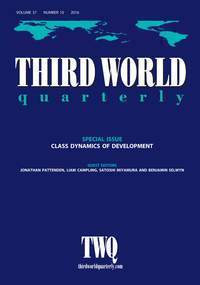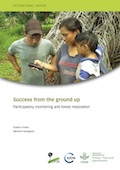Focal point
Location
The Center for International Forestry Research (CIFOR) is a non-profit, scientific facility that conducts research on the most pressing challenges of forest and landscapes management around the world. With our global, multidisciplinary approach, we aim to improve human well-being, protect the environment, and increase equity. To do so, we help policymakers, practitioners and communities make decisions based on solid science about how they use and manage their forests and landscapes.
Capacity building, collaboration and partnerships are essential to finding and implementing innovative solutions to the challenges that the globe faces. We are proud to work with local and international partners. We are a member of the CGIAR Consortium and lead the CGIAR Research Program on Forests, Trees and Agroforestry.
Our headquarters are in Bogor, Indonesia. We have offices in 8 countries across Asia, Latin America and Africa, and we work in more than 30 countries. Contact us for more information.
Resources
Displaying 101 - 105 of 808Engendering social and environmental safeguards in REDD+: lessons from feminist and development research
Drawing on feminist and development literature, this paper suggests several important lessons and considerations for building equitable approaches to REDD+. Specifically, we illustrate the conceptual and practical significance of womens participation for achieving the goals of REDD+as well as the limits and opportunities for gendering participation in REDD+.
Success from the ground up: Participatory monitoring and forest restoration
New global forest restoration initiatives present an unparalleled opportunity to reverse the trend of deforestation and forest degradation in the coming years. This effort will require the collaboration of stakeholders at all levels, and most importantly, the participation and support of local people. These ambitious restoration initiatives will also require monitoring systems that allow for scalability and adaptability to a range of local sites.





